An Oak Tree at the Young Vic
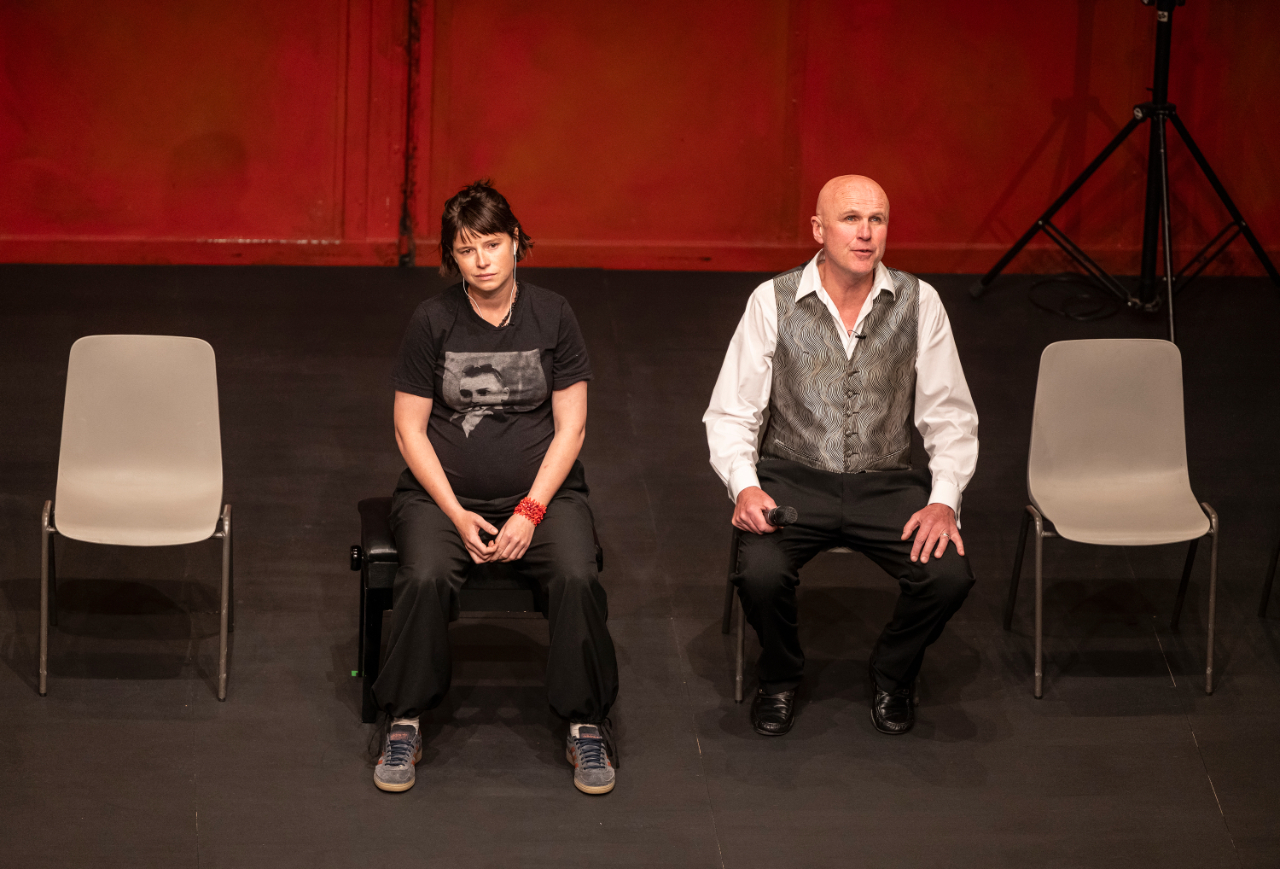
At the outset, Tim Crouch makes an unassuming entrance to a brightly lit stage, promptly inviting a member of the audience to the stage by name. While the audience’s role in An Oak Tree is, in truth, no more passive than it is at most any play, the immediate feeling is of a communal group activity with Crouch in the lead, his special guest our surrogate. The gambit that has sustained Crouch’s experiment over 20 years on from its 2005 debut is that Crouch will share the stage for the play’s duration with a lone scene partner who has neither seen nor read the piece, and thus will be taking Crouch’s instruction throughout. At this, the first night of the show’s revival run, it feels like especially good fortune that the guest unassumingly plucked from the crowd was an immediately game Jessie Buckley, who promptly set the tone for the show by asking Crouch, “How free am I?” before her instruction began.
Throughout the show, Buckley’s lines were either fed to her via headphones or dictated to her by Crouch himself, as the two enacted a fateful meeting between a sad-sack charlatan (Crouch) and the grieving father whose daughter he killed in an accident (Buckley). Dissuaded though we may have been of the play’s potential for razor’s edge improvisation, throughout Crouch appears uniquely involved with his creation enough to cause us to briefly question, as his hypnotist character nervily stumbles over his lines in an introductory spiel, whether this is an accident or a nervy character choice. Buckley responded in kind to his direction with equal playfulness and intense, interior focus, hurling herself into a gleefully hammed-up impromptu performance of an imagined piano or drawing the crowd into a guttural, anguished expression of grief. The friction created between the two over the course of the play’s fleet hour and change feels lived entirely in the moment, sometimes reticent, other times in sync enough to suggest much more advance preparation than Buckley had actually received.
Still, for all the fascination An Oak Tree exerts just from watching its two performers, it can also feel altogether too heady, too intricately mapped out, too knowing (though Crouch’s self-awareness is appreciated. When Buckley reads aloud that the show is “really well written” while Crouch fusses that it may all be “a bit contrived”, it does much to ward off any encroaching self-seriousness) to fully connect on an emotional level. Much of the buzz emerging from the show was centred less on the themes of grief and artificiality than on the adaptability of the night’s guest performer, and indeed, the temptation for a return visit largely rests on the sense that a night absent Buckley’s energy would surely be a different show altogether.
Ultimately, mileage may vary as to whether An Oak Tree resonates as a poignant reflection on loss or simply as an intricate piece of theatrical architecture, but what cannot be denied is the equal looseness and tight control of Crouch’s execution. Within the space he creates, his scene partner is somehow never able to seem wholly out of character, a fact that can be attributed equally to the inherent befuddlement of his scenarios (both the real and the fictional) as to the room the format makes for performers’ individual energies. Buckley’s occasional bouts of laughter were surely not all prompted, but in Crouch’s world, it can seamlessly scan as a character choice. The sense of a performance being discovered in real time is the real, rare gift this enduring production provides.
Be it an exercise or a genuinely dense, intellectually questing rumination, An Oak Tree is transfixingly strange theatre that offers a unique spectacle of mutual discovery shared between scene partners and with their audience.
Thomas Messner
Photos: Pamela Raith
An Oak Tree is at the Young Vic from 6th until 24th May 2025. For further information or to book, visit the theatre’s website here.

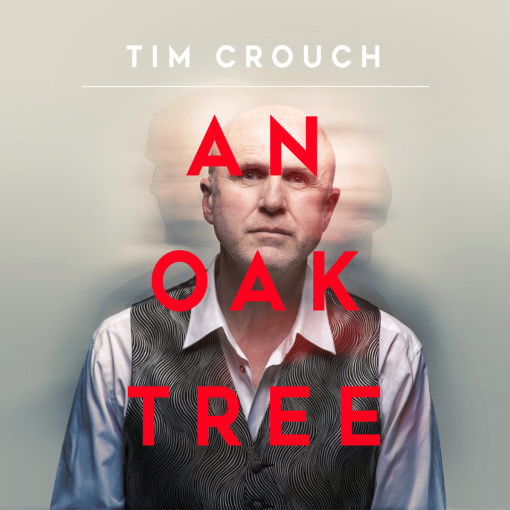
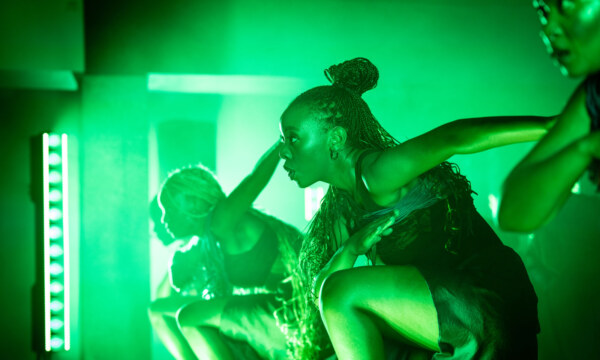
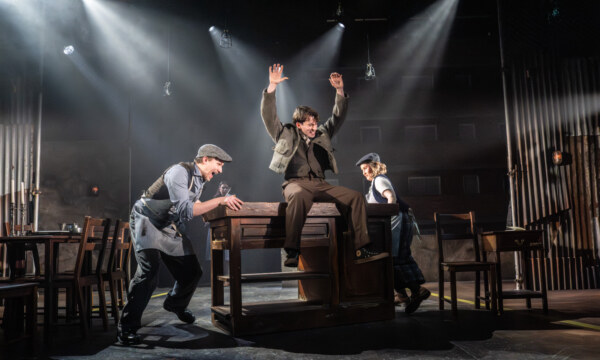
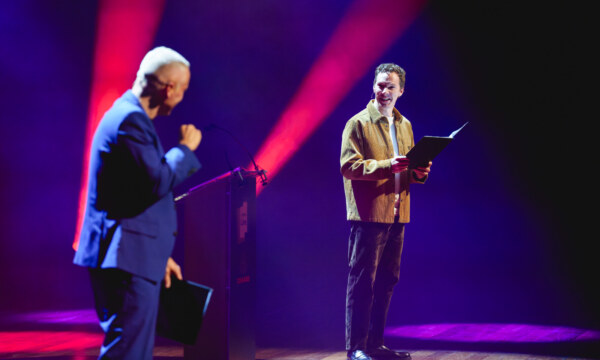
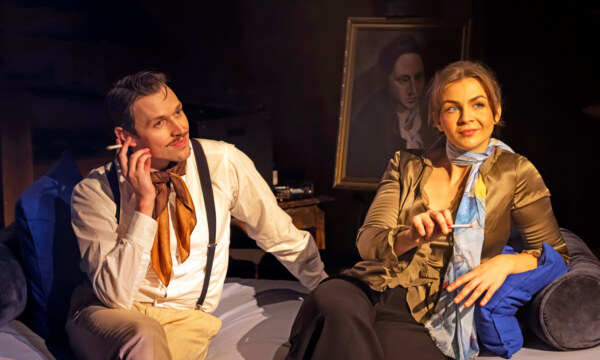
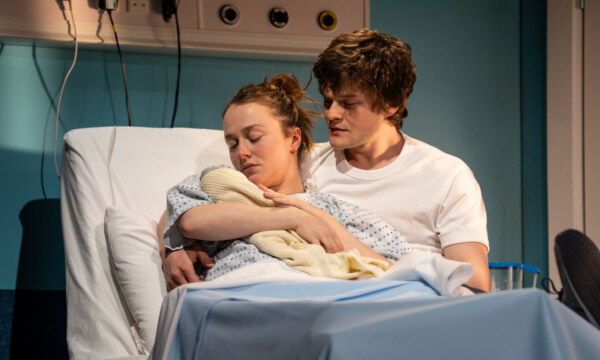


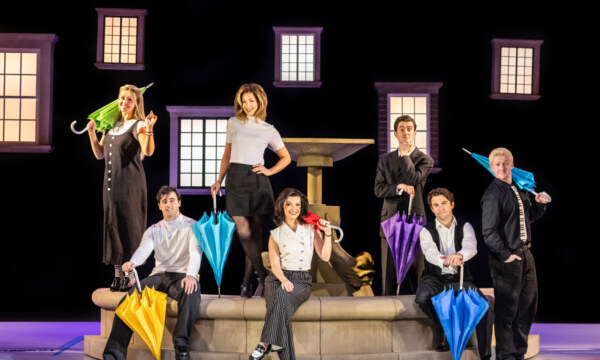
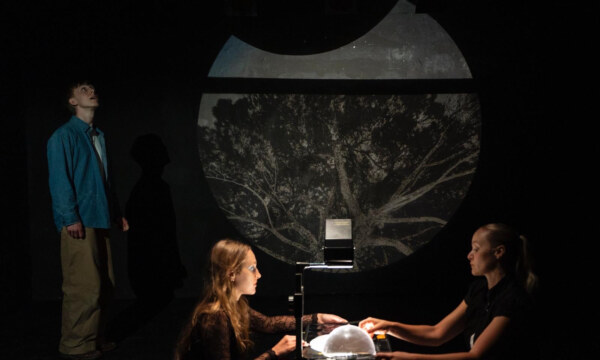




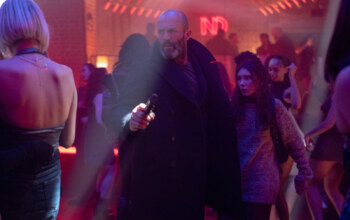
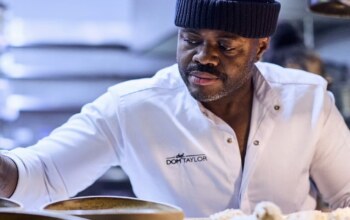






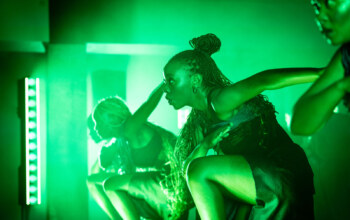

Facebook
Twitter
Instagram
YouTube
RSS